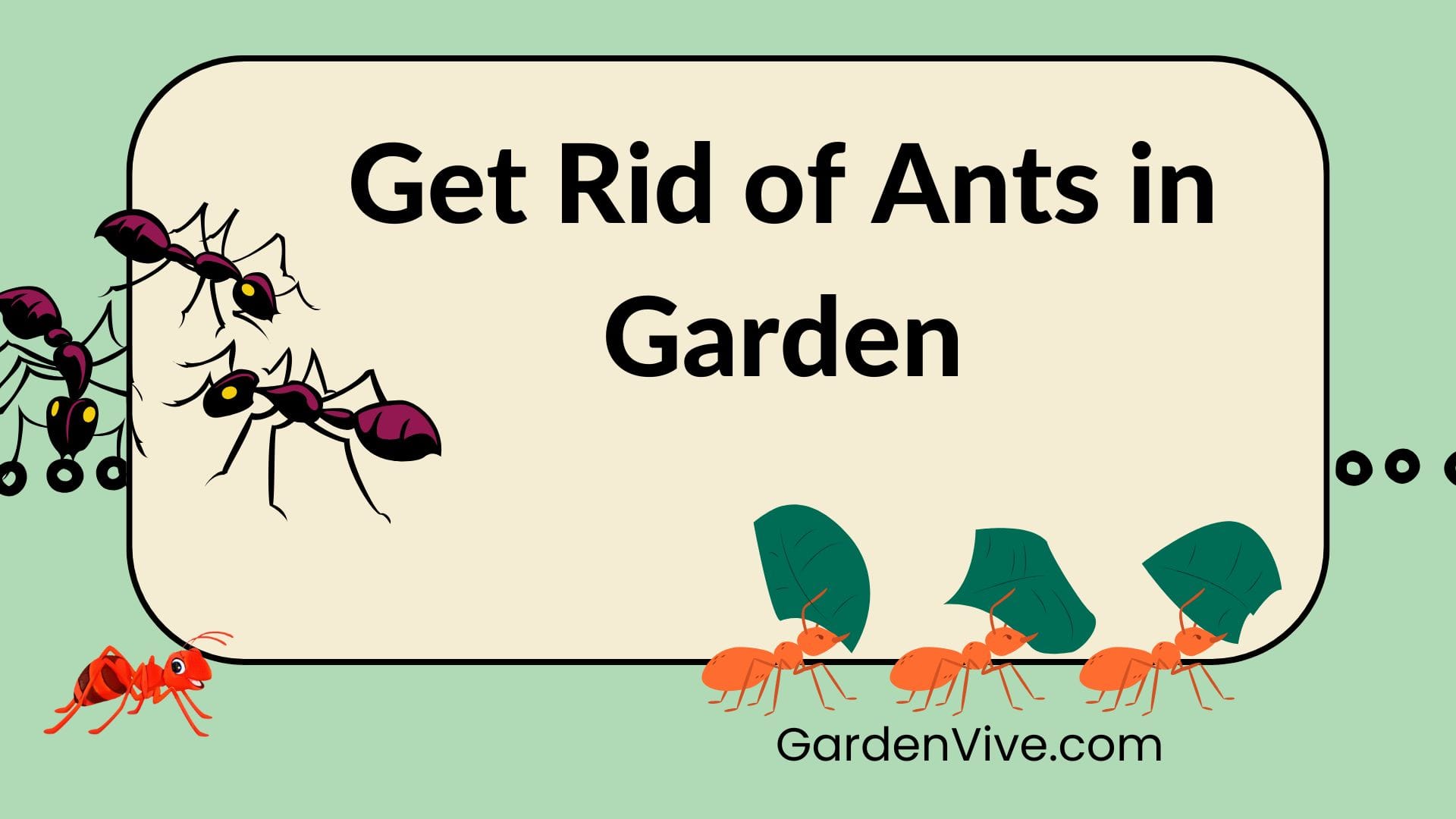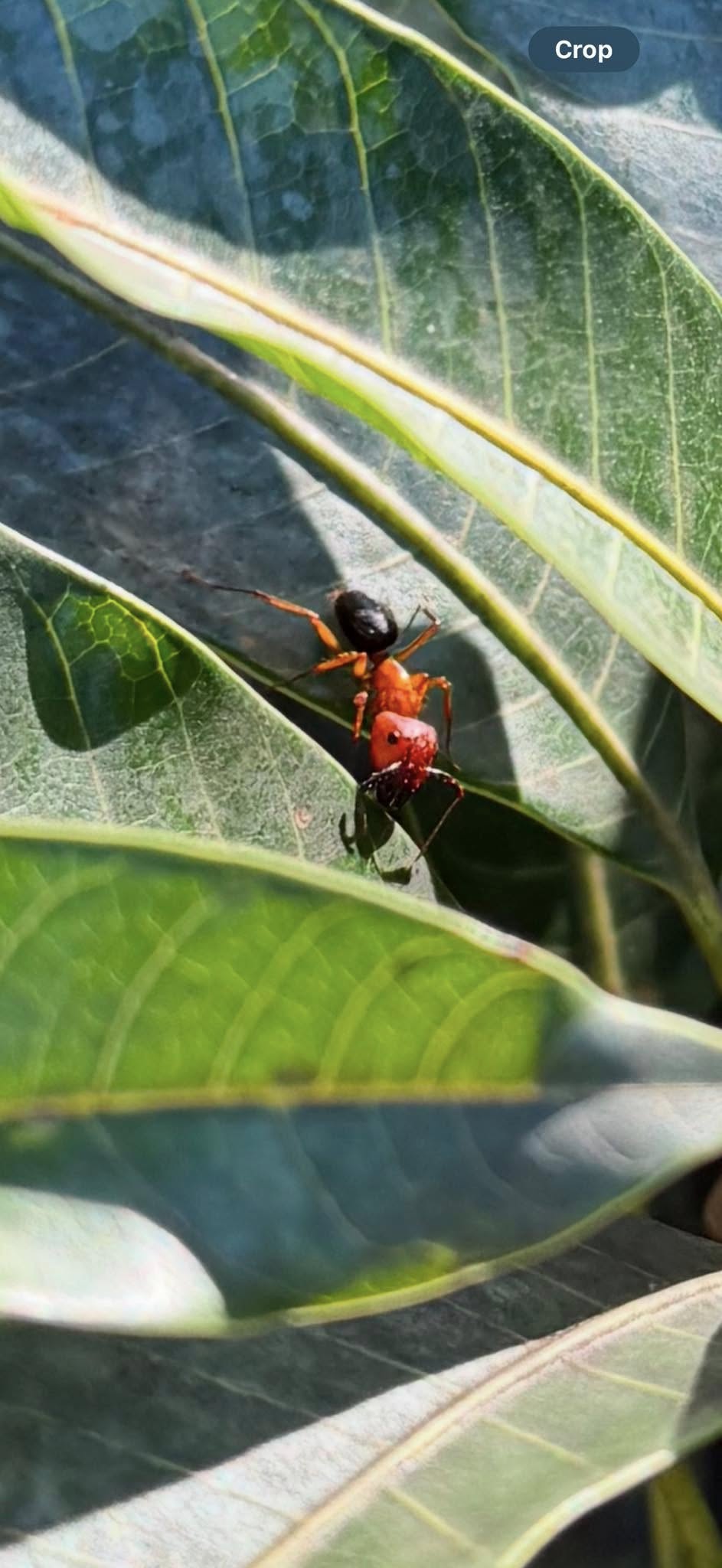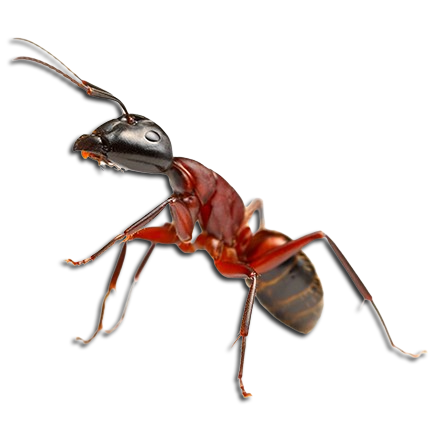
Ants are not good for our plants and trees. They destroy new foliage, fruit stalks, stems, and even leaves sometimes. The one benefit I observed is their role in pollination as they move among the flowers. In this article, I will guide how to get rid of ants in your garden.
Some species of ants don't usually harm our plants. Be nice to nature, it's best not to kill harmless ant species.
Harmless Ant Species for Our Garden
Let's take a quick look at the ant species that are usually harmless.
| Ant Name | Description | Regions |
|---|---|---|
| Black Carpenter Ant (*Camponotus pennsylvanicus*) | Helps aerate soil and clean up organic debris, without harming plants or trees. | United States, Canada |
| Field Ant (*Formica spp.*) | Assists in soil aeration and is harmless to plants, typically found in meadows. | United States, United Kingdom, Canada |
| Pavement Ant (*Tetramorium immigrans*) | Non-invasive ants that contribute to soil turnover, often seen in urban areas. | United States, United Kingdom, Canada, Australia |
| Little Black Ant (*Monomorium minimum*) | Tiny scavengers that feed on dead insects and do not harm vegetation. | United States, Canada |
| Velvety Tree Ant (*Liometopum occidentale*) | Inhabit tree cavities without damaging living plants. | United States |
| Black Garden Ant (*Lasius niger*) | A common species aiding in pollination and pest control, harmless to plants. | United Kingdom, Canada, New Zealand |
| Yellow Meadow Ant (*Lasius flavus*) | Improves soil health in grasslands without interfering with plant growth. | United Kingdom, Canada |
| Wood Ant (*Formica rufa*) | Builds nests in wooded areas and controls pest populations without harming plants. | United Kingdom, Canada, New Zealand |
| Tawny Crazy Ant (*Lasius fuliginosus*) | Forages in shaded areas and poses no threat to vegetation. | United Kingdom, Canada, Australia |
| Hairy Ant (*Formica fusca*) | A non-invasive ant that forages harmlessly around vegetation. | United Kingdom, Canada |

Common solutions to get rid of all harmful (to plants) species of ants
It's best to treat the ants according to their species. There are a lot of solutions and a few of those work fine on almost all the ant types.
The best one is gammexane. You can buy from local stores. This is the composition but you can find it in the stores as powder. This will kill all kinds of ants and insects.
This is toxic to all insects and should be kept away from pets and children.
The next one is DE powder. Sprinkle it near your plants and trees or directly on the ants.
On potted plants, you can sprinkle on the soil.
Borax does well on most of the ants, especially on fire ants.
Solution depending upon ant species
| Ant Name | Control Methods |
|---|---|
| Fire Ant (*Solenopsis invicta*) | Use ant baits with hydramethylnon or spinosad; treat mounds with insecticide granules. |
| Argentine Ant (*Linepithema humile*) | Apply borax-based ant bait near trails and seal entry points in your home. |
| Pharaoh Ant (*Monomorium pharaonis*) | Deploy bait stations containing fipronil or hydramethylnon; avoid spraying as it scatters colonies. |
| Caribbean Crazy Ant (*Nylanderia pubens*) | Use perimeter insecticide sprays and sugar-based baits with boric acid. |
| Red Imported Fire Ant (*Solenopsis invicta*) | Broadcast bait treatments containing methoprene; apply mound drenches as needed. |
| Black House Ant (*Ochetellus glaber*) | Use sugar-based gel baits with imidacloprid; clean surfaces to remove trails. |
| Leafcutter Ant (*Atta spp.*) | Apply granular baits containing spinosad near active trails and nests. |
| Bulldog Ant (*Myrmecia spp.*) | Treat nests with insecticide sprays; wear protective clothing due to their aggressive nature. |
Now most might be wondering which insecticide should we use.
Recommended Insecticides for the ants
| Ant Name | Recommended Insecticides |
|---|---|
| Fire Ant (*Solenopsis invicta*) | Hydramethylnon, Methoprene, Spinosad |
| Argentine Ant (*Linepithema humile*) | Borax baits, Fipronil gel |
| Pharaoh Ant (*Monomorium pharaonis*) | Fipronil, Hydramethylnon |
| Caribbean Crazy Ant (*Nylanderia pubens*) | Boric acid baits, Permethrin sprays |
| Leafcutter Ant (*Atta spp.*) | Spinosad granular baits |
| Bulldog Ant (*Myrmecia spp.*) | Deltamethrin, Cypermethrin |

Home remedies and natural solutions to get rid of ants
A lot of gardeners ask in the gardening communities on social media if they want the solution for potted plants or raised beds. The solution should be the same.
The pots are smaller in size and the ants won't act differently in the soil or raised bed soil.
Using water and vinegar
If you witness ants living in the soil and you are worried, (It's normal to be worried ) water the raised bed or your pot or the normal garden soil thoroughly.
Do not ignore the plant's watering schedule. You should not implement this method to the plants that are sensitive to water.
The ants will come out from the soil and spray this solution - Mix equal parts of water and vinegar and spray it.
So how does it work? They don't like the smell at all. They will tend to switch places. But keep in mind that this method does not kill ants at all.
Baking soda and sugar
I love this method and works nicely for me. Mix baking soda and sugar in 1:1 ratio. Sugar will lure the ants and baking soda will kill the ants slowly.
How does it work? The ants will be attracted to sugar and baking soda damages their digestive system.
There are a few other home remedies that I found on the internet and tried myself but to be honest, they did not seem to be working for me.
I can't suggest anything that did not go well when I tested.
Extra note: Ants love mealybugs and a few other pests. Ants drink the sweet extracts from those pests.
Check my complete guidelines on how to get rid of mealybugs - 2 Tested methods
Tried my best to make this article shorter and to the point. I love creating those tables as they make us read everything in a much faster way. If you love the way I write to help you in gardening please subscribe to this site ( It's free!) and share with your gardener friends who are annoyed by ants.
